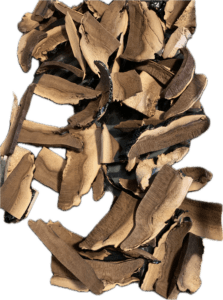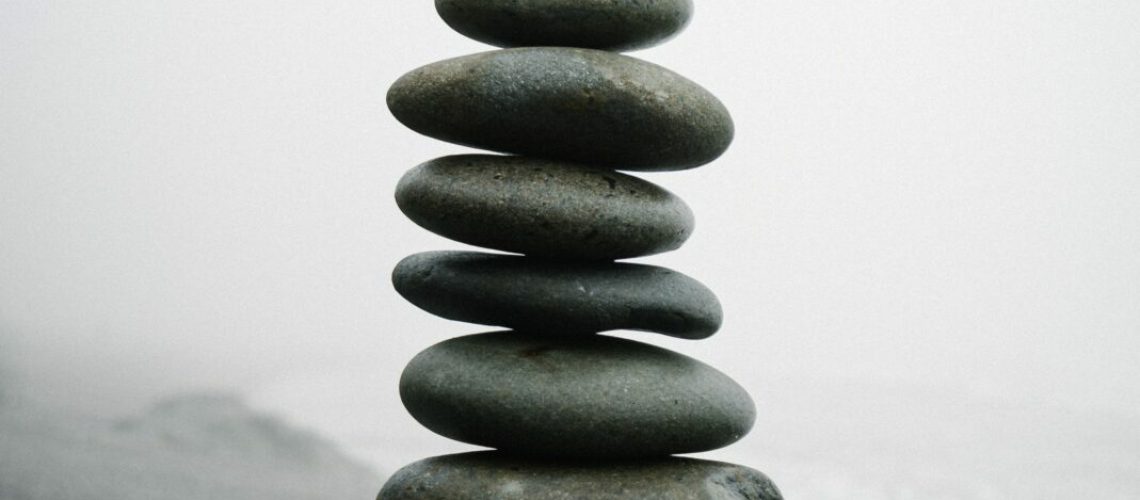Just seeing the word meditate can feel like nails on a chalkboard to people who have a hard time even contemplating about the act of sitting still and quieting their mind, let alone actually doing it. Maybe you’ve tried meditating in the past and got frustrated by intrusive thoughts or maybe undesirable emotions came to the surface that you didn’t want to have to deal with.
Perhaps your mind just kept wanting to project into the near future and became impatient to get going on all the things you needed to do that day or even just went to thoughts of what was for lunch. I totally get it. I’ve been there. Meditation is challenging. Especially for a culture that is trained to continuously place their consciousness externally on what’s going on in the world, the race for materialistic things and what their social circle is up to.
Working with patients over the years I often recommend taking up a meditation practice to help still the mind, relieve mental-emotional distress and to help counteract the deleterious effects that stress has on their health and well being. Many patients would agree they need to but then give me their excuse for why they don’t or can’t meditate:
- “I don’t have the time.”
- “My kids are never quiet and always on top of me.”
- “My ADD won’t let me.”
- “It makes me more agitated than calm.”
- “I don’t have enough experience meditating.”
…And on and on the list goes.
I liken the last excuse to when I ask a patient if they ever do yoga and they reply no, because they’re not flexible enough, but they aspire to be someday. One cannot just hop into a yoga practice automatically blessed with flexibility. It takes guidance, practice and consistency. Same with meditation or any skill or ability you want to get good at.
I hate to spoil the preconceived notions about meditating but you’re not going to sit down, close your eyes, focus on your breath and automatically be whisked away to the top of a Himalayan mountain, to have a cup of tea with an ascended master and achieve enlightenment. Can that happen? Sure! But most likely not on your first go of it, especially when your mind has entrained neuropathway tracts that run primarily in beta waves. Beta waves keep us in a fight or flight state and can cause all sorts of disruptions to the body and mind – most commonly anxiety and irritability.
Thankfully, nature invented some immensely helpful herbs and neurochemicals that can act as our internal shaman guides for getting the most out of our time meditating. Insert noottropics!
Nootropics is a fancy buzzword for brain enhancing supplements. They have been shown to improve cognitive functions such as memory, creativity, attention and focus. Taken regularly over time they have an adaptogenic effect on the brain and nervous system to build up resilience against negative emotions and stress as well as increase neuroplasticity in the brain.
Below are my top four nootropic recommendations to help you have a smoother meditation experience and hopefully, with time and practice, Nirvana.
Reishi Mushroom

I had to list reishi at the top of my list as it is, by far, superior to any other herb I have studied in Traditional Chinese Medicine and is at the top of its class as it nourishes what we call the 3 Treasures: Jing, Qi, and Shen. Jing is the health we originally inherit from our parents and ancestors. Qi is loosely translated as our life force energy. And Shen correlates to our soul essence and heart centers.
Reishi translates to spirit herb and is known as the herb of immortality. Ancient Taoists used reishi to become capable of spiritual transcendence. Over 2,000 years ago the renowned emperor of the Qing Dynasty, Shen Nong, stated that reishi was known to “lighten the body.” If I could choose one mushroom best suited for meditation, this is it.
As an adaptogen, Reishi has a powerful ability to help lower stress, has grounding and calming effects to aid in clearing the mind and relaxing the body, which in turn allows space for unlimited inspiration and creativity to develop and flow freely.
I love incorporating herbal medicine into my daily practices. If you’d like to buy fresh reishi and take it that way, check out my tutorial on how to make reishi mushroom coffee at home!
Lion’s Mane Mushroom

Lion’s mane is another superb mushroom in the material medica. It is prized for benefiting and protecting the brain and the nerves of the body. Lion’s mane enhances the brain and other related organ’s function by assisting with neurite outgrowth.
Neurite outgrowth is the growth of axons and dendrites from neurons, which is a promising herb to help prevent, slow or even reverse neurodegenerative diseases such as Parkinson’s and Alzheimer’s.
It’s polysaccharide content improves sleep by regulating the circadian rhythm and its anti-inflammatory effect can be of great benefit for people with mental health issues and even cancers. Getting adequate sleep is key in preventing and combating a myriad of diseases. In regards to your meditation practice, this mushroom will help sharpen focus and combat fatigue.
Rhodiola Rosea
Rhodiola rosea is a powerful adaptogenic herb that helps the body adapt to physical, chemical and environmental stress. It’s chemical constituent, rosavin, helps the body balance the stress hormone, cortisol.
This herb works synergistically with meditation to help guide you back to your center, make you feel at peace in your own body and guards you against the negative effects of future stressors so they don’t take as much of a toll on your body and mind.
Ginkgo Biloba

Ginkgo biloba is most famously known as an herb that helps with memory. It does this by opening up and enhancing the blood flow circulation in the brain. It’s also an effective anti-inflammatory that increases antioxidant activity and lowers oxidative stress.
Why I like this herb so much as an adjunct to meditation is for its ability to quiet a racing mind and allow you to sit still in silence. People with ADHD/ADD can benefit greatly from this herb.
GABA
Lastly, I love GABA, or gamma-aninobutyric acid, which is a neurotransmitter that aids in relaying messages between the brain and nervous system. There has been a lot of research done on GABA showing how it plays a key roll in relieving depression, ADHD, PMS, anxiety, stress and insomnia. This is a great addition for types who says they could never meditate because they feel like they’re going to jump out of their skin. GABA will help you feel at peace, centered and well regulated so you’re able to sit, focus and journey within.
A Word of Caution
These nootropics aren’t a one-size-fits-all. For example, these supplements are not appropriate for women who are pregnant or patients taking SSRIs, MAOIs or blood thinners. It’s best to work with a trained herbologist who can best guide you on what is appropriate for your specific constitution, has in depth knowledge in deficiency patterns, as well as the ability to cross-reference if these supplements will interfere with drugs or other herbs you are already taking.
To book an herbal consultation with me to see if these nootropics would be ideal for you and your lifestyle, please feel free to schedule with me at a time of your convenience and if we find they are a good fit for you, I’ve created an easy way for patients to order them via my Fullscript store.


